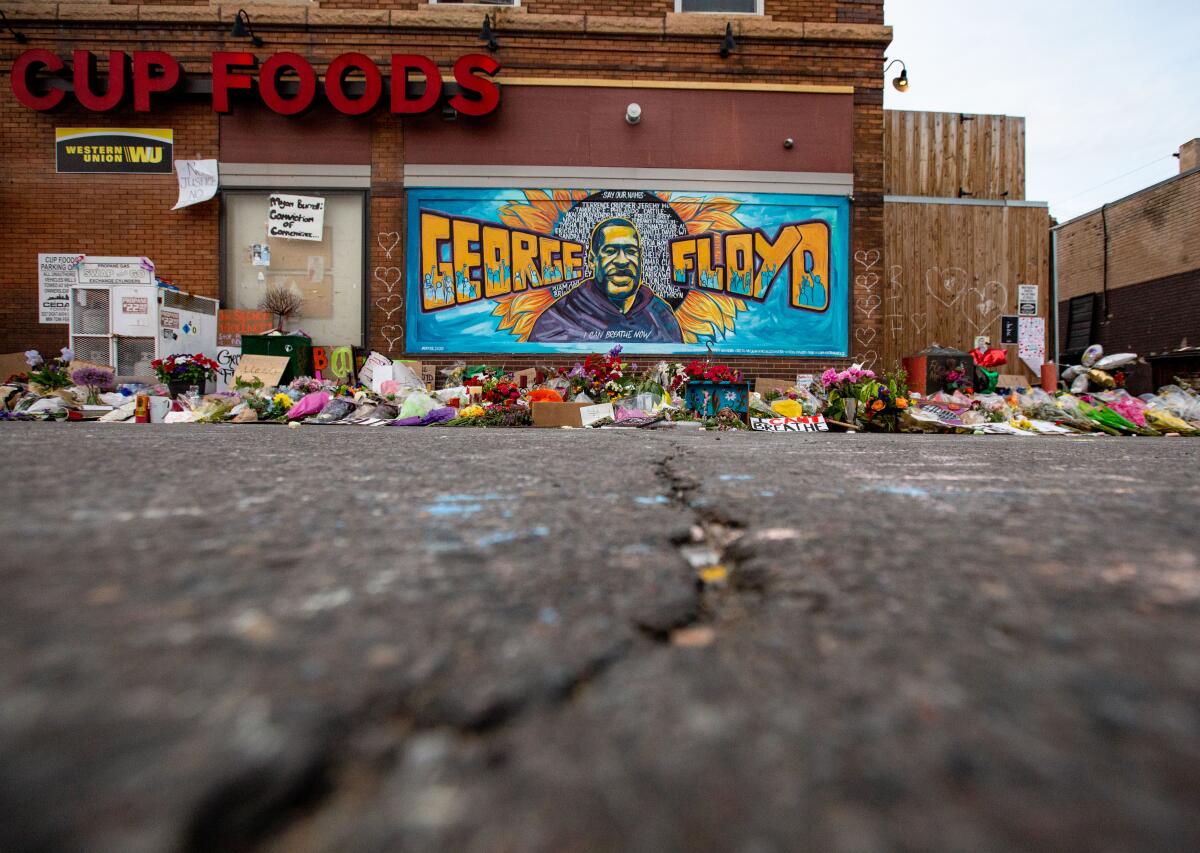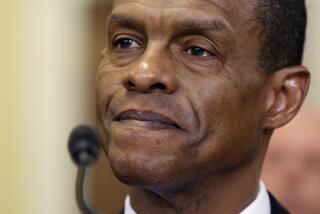Op-Ed: To end bad policing, follow the Obama plan. But also clean house in Minneapolis

- Share via
I join the millions of people who offer condolences to the family and loved ones of George Floyd. As I watch all the various protests and demonstrations, and read the comments by politicians, celebrities and powerful organizations, I am thankful they are speaking out. I am an African American and a former police chief in Maryland and Oregon, and it is painful to have to talk about how much policing in America needs to change.
First, in Minneapolis, change should start with firing Chief of Police Medaria Arradondo. The officers involved in the Floyd killing were dismissed, but exacting punishment only at the rank of officer is unacceptable.
The restraint that Officer Derek Chauvin employs in the Floyd video, kneeling on a suspect’s neck, is not acceptable. All chokeholds should be banned, but in Minneapolis, some kinds of “neck restraints” that can cause unconsciousness are allowed in the policy manual. How could the chief of police not have changed this policy? How could he not have been aware of the 2014 Eric Garner case in New York? How could he not be aware of the firestorm that caused then-LAPD Chief of Police Daryl Gates to issue a policy against the chokehold in 1982?
In addition to the removal of the chief, the people of Minneapolis should demand that their mayor and City Council resign. How could they not have known that chokeholds were being used on the citizens of this community?
The courts will judge Chauvin’s exact actions and how they fit into the Minneapolis Police Department policies and training practices. In the video of the incident, it looked as if all the officers on the scene were comfortable with what was happening. They made no effort to hide or conceal their actions.
An NBC News analysis by Emily R. Siegel, Andrew W. Lehren and Andrew Blankstein reports that the agency “used neck restraints at least 237 times since the beginning of 2015, with people being rendered unconscious 44 times,” and that the “protocol” for the use of neck restraints had not been updated for more than eight years. The analysis tallied who was most affected: “Three-fifths of those subjected to neck restraints and then rendered unconscious were black.”
Second, every police agency represented in the Major Cities Chiefs Assn. — a group of police chiefs from the 69 largest urban areas in the U.S., plus nine in Canada — should implement the recommendations of President Obama’s Task Force on 21st Century Policing. The Trump administration did not follow up on the 2015 report, but that does not reduce the merit of its findings.
The Obama task force established six “pillars” of policing, among them: embracing the mindset of a guardian, not a warrior; establishing collaborative, community policing practices and oversight; providing high-quality training for officers. If departments choose not to implement some of the recommendations, they should provide verbal and written explanations to their elected officials and community members.
The task force also called on the Department of Justice to provide technical assistance and other support to agencies to implement the task force recommendations. If the DOJ fails to follow through on those programs, that too should be documented to our elected officials — Congress.
Finally, every major city police agency should support and cooperate with a civilian review board that consists of local community members to investigate and review cases of police misconduct and discipline. This is among the recommendations of the task force, but it bears emphasis.
The board should act as a policy review body to assure that departments have in place use-of-force and other policies that reflect the values of their community. On the question of “who will police the police,” the answer must be the local community.
The death, injury and tragedy suffered by the Black community in 2020 has been all too foreseeable. It represents a convergence of disproportionate policing and years of discriminatory practices in medicine, food, housing, education and wages.
Policing in the United States can and must continuously improve. This country has the talent and wherewithal to begin the hard work to right things.
Charles A. Moose was chief of police in Maryland’s Montgomery County and in Portland, Ore. He was in charge of the effort to apprehend the Beltway snipers, in and around Washington, in 2002.
More to Read
A cure for the common opinion
Get thought-provoking perspectives with our weekly newsletter.
You may occasionally receive promotional content from the Los Angeles Times.










